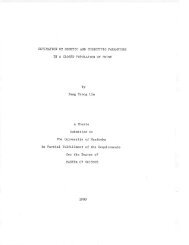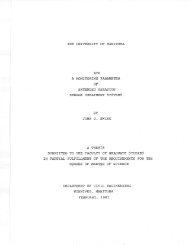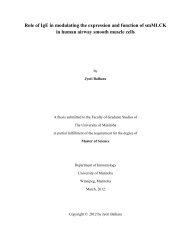Adverbial and Argument-Doubling Clauses in Cree - MSpace
Adverbial and Argument-Doubling Clauses in Cree - MSpace
Adverbial and Argument-Doubling Clauses in Cree - MSpace
You also want an ePaper? Increase the reach of your titles
YUMPU automatically turns print PDFs into web optimized ePapers that Google loves.
Chaptcr 4<br />
Obviation<br />
4.1 Introduction<br />
We tum now to an exam<strong>in</strong>ation of another difference between what 1 propose are<br />
argument-doubl<strong>in</strong>g <strong>and</strong> adverbial clauses <strong>in</strong> <strong>Cree</strong>. The assignment of obviation statu, <strong>and</strong><br />
especially its re-assignment presents us with clear evidence <strong>in</strong> support of a dist<strong>in</strong>ction<br />
between these clauses. In panicular, 1 will show that the re-assignment of the proximate<br />
role is restricted between some subord<strong>in</strong>ate clauses <strong>and</strong> the matrix clause. Proximate<br />
shifts cannot occur between a matnx clause <strong>and</strong> an argument-doubl<strong>in</strong>g clause. In contrast,<br />
if the subord<strong>in</strong>ate clause is an adverbial clause, this restriction is lifted, <strong>and</strong> re-assignment<br />
is left to the discretion of the speaker.<br />
The obviation status of a participant is recognized as a feature of that argument.<br />
However, unlike phi-features. obviation is not lexically encoded. Phi-features are features<br />
of person, number, gender <strong>and</strong> case." They are <strong>in</strong>tr<strong>in</strong>sically identified by the mean<strong>in</strong>g of a<br />
word. In Aigonquian languages, obviation is encoded <strong>in</strong> the morpho-syntax. Its value is<br />
identified <strong>in</strong> the grammar, not <strong>in</strong> the lexicon. For example, if we consider the referent<br />
w~ikq6s 'bear' , it will always be third penon, animate <strong>and</strong> s<strong>in</strong>gular. Those feature values<br />
are <strong>in</strong>herent <strong>in</strong> this nom<strong>in</strong>d. The Iexical content of the rest of the sentence does not have<br />
any efect on these features. The significance of obviation as opposed to phi-features is<br />
3 1<br />
This thesis does not discuss Case <strong>in</strong> <strong>Cree</strong>. For a discussion of Case. see Decha<strong>in</strong>e <strong>and</strong> Re<strong>in</strong>holtz (1998).



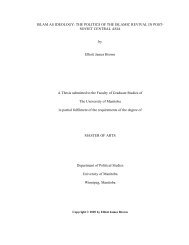
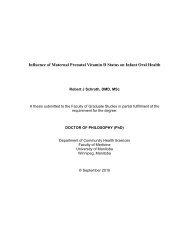
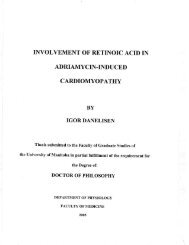
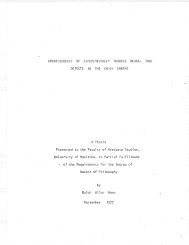
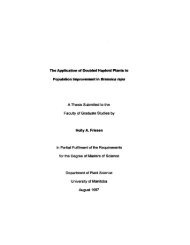
![an unusual bacterial isolate from in partial fulf]lment for the ... - MSpace](https://img.yumpu.com/21942008/1/190x245/an-unusual-bacterial-isolate-from-in-partial-fulflment-for-the-mspace.jpg?quality=85)
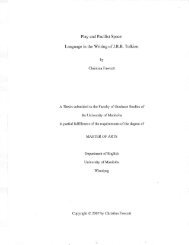
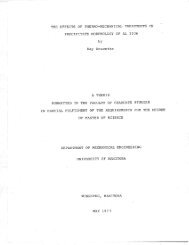
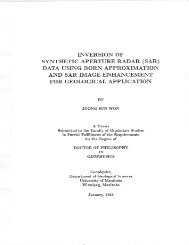
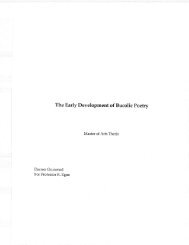
![in partial fulfil]ment of the - MSpace - University of Manitoba](https://img.yumpu.com/21941988/1/190x245/in-partial-fulfilment-of-the-mspace-university-of-manitoba.jpg?quality=85)
